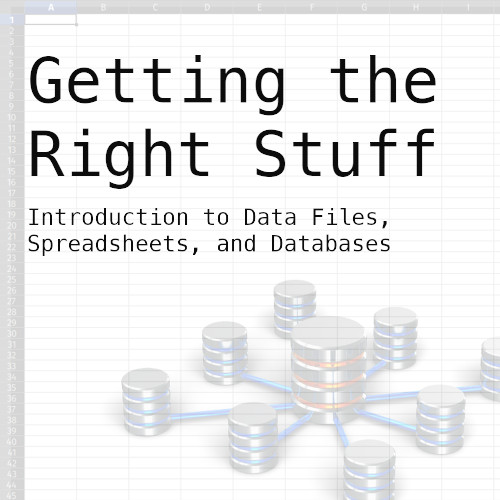Getting the Right Stuff: Introduction to Data Files, Spreadsheets, and Databases

Learn how to collect, generate, and manipulate data of all kinds so that you can make decisions and meet the challenges you’re facing. You’ll see how simple, text-based data files and command-line utilities have been and are still being used in all sorts of applications today, what spreadsheets have to offer, and how all these tools differ from Relational Database Management Systems (RDMSs) like MySQL/MariaDB, PostgreSQL, Oracle, or Microsoft SQL Server. This workshop will also touch on Web scraping, form building, mail merges, data cleaning, and other techniques you need to know to make automating the boring parts of your day possible.
Detailed description
If knowledge is power, what is knowledge? On a computer, knowledge comes from data. By collecting data relevant to the problem you’re trying to solve, you can scrutinize it in various different ways until you’re able to draw meaningful conclusions from the dataset; you turn data into information, and from that information you gain knowledge, which gives you power. But this is all much easier said than done, especially if you are not already familiar with how to work with digital data.
This workshop introduces you to the concepts and techniques you need to know to collect, generate, and manipulate digital information regardless of the specific application or problem domain you’re working in. Ever since the dawn of computing, data has been a central element in computer use. After all, what good is a computer without data to compute? Early databases took the form of stacks of physical punch cards. Later on, databases were created out of structured text files (and many of these still exist on your computer today, whether you realize it or not). With the advent of “personal” computing in the 1980’s, digital spreadsheets in applications like Lotus 1-2-3 brought enterprise automation solutions to the masses—or it would have, if more people had the opportunity to learn how to use these powerful tools.
Today, massive datasets with billions or trillions of records are often stored in Relational Database Management Systems (RDMSs) and are accessed using specialized computer languages such as the Structured Query Language (SQL). These databases are thus the crown jewels of every company or organization conducting business online. Everything that matters to them gets stored in a database of some kind, from email subscriber lists, customer records, call logs, and purchase orders, to social media postings, blog comments, personal photos, and much more. Practice working with different kinds of data to learn the foundations relevant to all data exploration and transformation tasks in this introductory workshop that will help you ensure you can get the right stuff to construct successful solutions to any problem.
Upcoming “Getting the Right Stuff: Introduction to Data Files, Spreadsheets, and Databases” Events
(Not currently scheduled.)